BY DEFENCE JOURNALIST SAHIL | T.I.N. NETWORK
CDS General Anil Chauhan Visits DSSC Wellington, Highlights Operation Sindoor, Jointness & Military Transformation
Wellington, Tamil Nadu / New Delhi, 19 July 2025:
In a significant outreach to India’s future military leadership, Chief of Defence Staff (CDS) General Anil Chauhan today visited the prestigious Defence Services Staff College (DSSC) in Wellington, Tamil Nadu. Addressing the officers of the 81st Staff Course, the CDS highlighted the Indian Armed Forces’ evolving strategic posture and reinforced the importance of Tri-Services synergy, indigenous capability building, and institutional transformation.
The visit assumes particular significance as the Indian military embarks on sweeping reforms to modernise its operational structures and sharpen integrated warfighting capabilities — key themes General Chauhan underlined during his address.
Operation Sindoor: Tri-Services Synergy in Action
Speaking to over 500 student officers, including 45 international officers from 35 friendly foreign countries, General Chauhan gave a comprehensive overview of the recently concluded Operation Sindoor. He spotlighted how the operation showcased unparalleled levels of jointness, coordination, and real-time execution across the Indian Army, Navy, and Air Force.
Describing the operation as a textbook example of integrated warfare, the CDS delved into:
- Strategic application of force across multiple domains — land, air, and sea.
- Unified command structures and interoperability mechanisms.
- Rapid decision-making facilitated by seamless communication and joint intelligence platforms.
- Lessons learnt for future force planning in high-tempo, multi-front scenarios.
Dialogue on Capability Development & Military Transformation
Following his address, General Chauhan engaged in an interactive session with the permanent faculty and station officers at DSSC. He called for continued intellectual and operational rigour in shaping future military leadership and emphasized several core imperatives:
- Integration and Jointness: General Chauhan reasserted the criticality of institutionalising jointness in planning, logistics, training, and operations. He praised DSSC’s contributions in shaping officers with inter-service awareness.
- Aatmanirbharta in Defence: Emphasising the importance of self-reliance, he encouraged officers to embrace and promote indigenisation in defence technology, doctrine, and systems.
- Understanding Military Reforms: The CDS shared insights into the ongoing transformational reforms being pursued across the services — from theatre commands and joint logistics nodes to advanced digital warfare infrastructure and defence-space integration.
Briefing by DSSC Commandant and Deep Purple Division Initiative
General Chauhan was also briefed by Lt Gen Virendra Vats, Commandant of DSSC, on the academic and operational focus areas of the 45-week 81st Staff Course. A key highlight of the briefing was the institutionalisation of the ‘Deep Purple Division’, a landmark step by DSSC to formalise inter-service education, cross-domain analysis, and joint military strategy simulation.
The Deep Purple Division has emerged as a central hub for blending domain-specific expertise and promoting ‘purple thought’ — a term used for unified strategic thinking across Army (green), Navy (blue), and Air Force (light blue).
Lt Gen Vats also informed the CDS about:
- The evolving pedagogy at DSSC integrating digital tools, AI wargaming, and real-time scenario modelling.
- Expanded global outreach with participation of officers from countries such as Vietnam, Egypt, Nigeria, France, and Bangladesh.
- Strengthening India’s diplomatic-military ties through academic-military cooperation.
A Legacy of Strategic Education
The Defence Services Staff College, established in 1905 and relocated to Wellington in 1948, continues to play a critical role in shaping India’s future military planners and joint leaders. The presence of the CDS and the emphasis on Operation Sindoor further cement its role as a strategic nucleus for inter-service training and vision building.
As India accelerates its journey towards becoming a fully integrated and self-reliant defence power, institutions like DSSC remain indispensable in nurturing joint leadership, strategic acumen, and operational foresight.
सीडीएस जनरल अनिल चौहान की डिफेंस सर्विसेज स्टाफ कॉलेज वेलिंगटन यात्रा — ‘ऑपरेशन सिंदूर’ और तीनों सेनाओं की संयुक्तता पर दिया जोर
वेलिंगटन (तमिलनाडु)/नई दिल्ली, 19 जुलाई 2025:
भारत के चीफ ऑफ डिफेंस स्टाफ (CDS) जनरल अनिल चौहान ने आज तमिलनाडु के वेलिंगटन स्थित प्रतिष्ठित डिफेंस सर्विसेज स्टाफ कॉलेज (DSSC) का दौरा किया। उन्होंने 81वें स्टाफ कोर्स के भारतीय और विदेशी अधिकारी प्रशिक्षुओं को संबोधित किया और हाल ही में सम्पन्न ‘ऑपरेशन सिंदूर’ की सफलता के माध्यम से भारत की सैन्य संयुक्तता, स्वदेशीकरण और रणनीतिक परिवर्तन की दिशा को रेखांकित किया।
जनरल चौहान का यह दौरा उस समय हुआ है जब भारत की सशस्त्र सेनाएं व्यापक संरचनात्मक सुधारों और तीनों सेनाओं के एकीकृत संचालन को संस्थागत रूप देने की दिशा में अग्रसर हैं।
ऑपरेशन सिंदूर: एकीकृत युद्ध क्षमता की मिसाल
अपने संबोधन में CDS ने ऑपरेशन सिंदूर को तीनों सेनाओं — थल, वायु और नौसेना — की संयुक्तता और युद्ध कौशल का बेहतरीन उदाहरण बताया। उन्होंने कहा कि इस ऑपरेशन ने भारत की वास्तविक संयुक्त ऑपरेशनल क्षमता को वैश्विक मंच पर दर्शाया।
उन्होंने विशेष रूप से बताया कि:
- किस प्रकार विभिन्न डोमेन (जमीन, समुद्र, आकाश) में एकसाथ सैन्य बलों की तैनाती की गई।
- संयुक्त निर्णय प्रणाली और इंटर-सर्विस इंटेलिजेंस से कार्रवाई तेज हुई।
- थिएटर-स्तरीय प्लानिंग और त्वरित प्रतिक्रिया की सफलताओं से भविष्य की रणनीति में दिशा मिली।
संयुक्तता, आत्मनिर्भरता और सैन्य सुधारों पर संवाद
सीडीएस ने कॉलेज के स्थायी स्टाफ और स्टेशन अधिकारियों के साथ बातचीत करते हुए कहा कि भारतीय सेनाओं को आज केवल युद्ध जीतने के लिए नहीं बल्कि रणनीतिक रूप से आत्मनिर्भर, डिजिटल और संगठित बनने की जरूरत है।
उन्होंने ज़ोर दिया:
- संयुक्तता और एकीकरण: संचालन, ट्रेनिंग, लॉजिस्टिक्स और विचार में समन्वय आवश्यक।
- आत्मनिर्भरता (Aatmanirbharta): स्वदेशी रक्षा निर्माण, तकनीक और विचारधारा को बढ़ावा देना आवश्यक है।
- सेनाओं में परिवर्तन की समझ: CDS ने साझा किया कि थिएटर कमांड, जॉइंट लॉजिस्टिक्स और डिजिटल युद्धक्षमता पर जोर देकर भारत सैन्य संरचनाओं को पूरी तरह बदल रहा है।
DSSC कमांडेंट की ब्रीफिंग और ‘Deep Purple Division’ की पहल
CDS को कॉलेज के कमांडेंट लेफ्टिनेंट जनरल वीरेन्द्र वत्स ने कॉलेज की ट्रेनिंग गतिविधियों की जानकारी दी। खासतौर पर ‘Deep Purple Division’ की संस्थागत स्थापना को रेखांकित किया गया जो तीनों सेनाओं की सोच को एकीकृत करने की दिशा में DSSC का अभिनव प्रयास है।
Deep Purple Division अब एक ऐसा मंच बन चुका है जहां थल, वायु और नौसेना के अधिकारी मिलकर एकीकृत रणनीति पर काम करते हैं।
ब्रीफिंग में यह भी बताया गया:
- DSSC में AI आधारित वॉर-गेमिंग, डिजिटल टूल्स और वास्तविक समय पर आधारित युद्ध सिमुलेशन अपनाया गया है।
- इस बार 500 प्रशिक्षु अधिकारियों में से 45 अधिकारी 35 मित्र देशों से हैं — जैसे वियतनाम, मिस्र, फ्रांस, बांग्लादेश और नाइजीरिया।
- यह भारत की सामरिक कूटनीति को सैन्य शिक्षा के माध्यम से भी मजबूत करता है।
रणनीतिक शिक्षा का मुख्य केंद्र
1905 में स्थापित और 1948 में वेलिंगटन स्थानांतरित DSSC भारतीय सेना की रणनीतिक शिक्षा का आधार स्तंभ है। CDS की यह यात्रा और ‘ऑपरेशन सिंदूर’ पर विशेष ध्यान इसे युद्ध नीति निर्माण का केंद्रीय केंद्र बनाता है।
जैसे-जैसे भारत एक पूर्ण रूप से एकीकृत और आत्मनिर्भर सैन्य शक्ति की ओर अग्रसर है, DSSC जैसे संस्थान उसकी रीढ़ की हड्डी साबित हो रहे हैं।


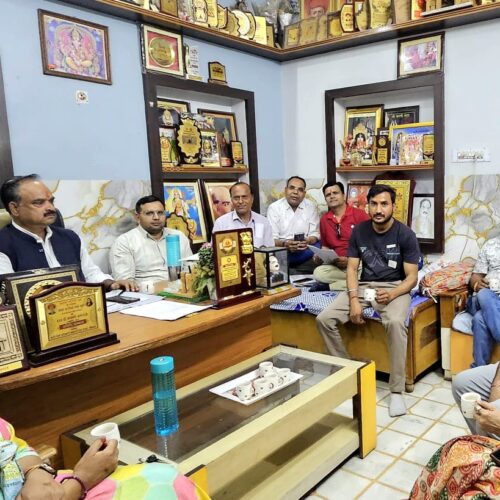

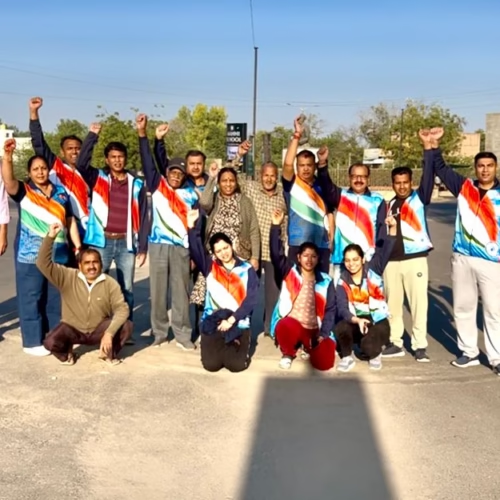

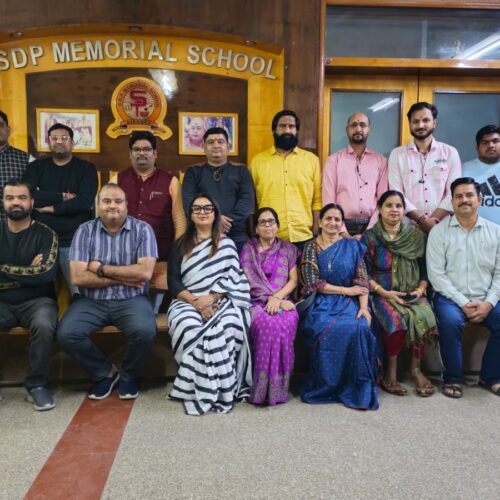
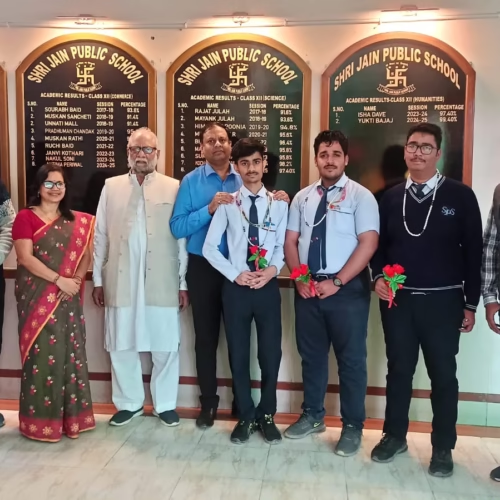
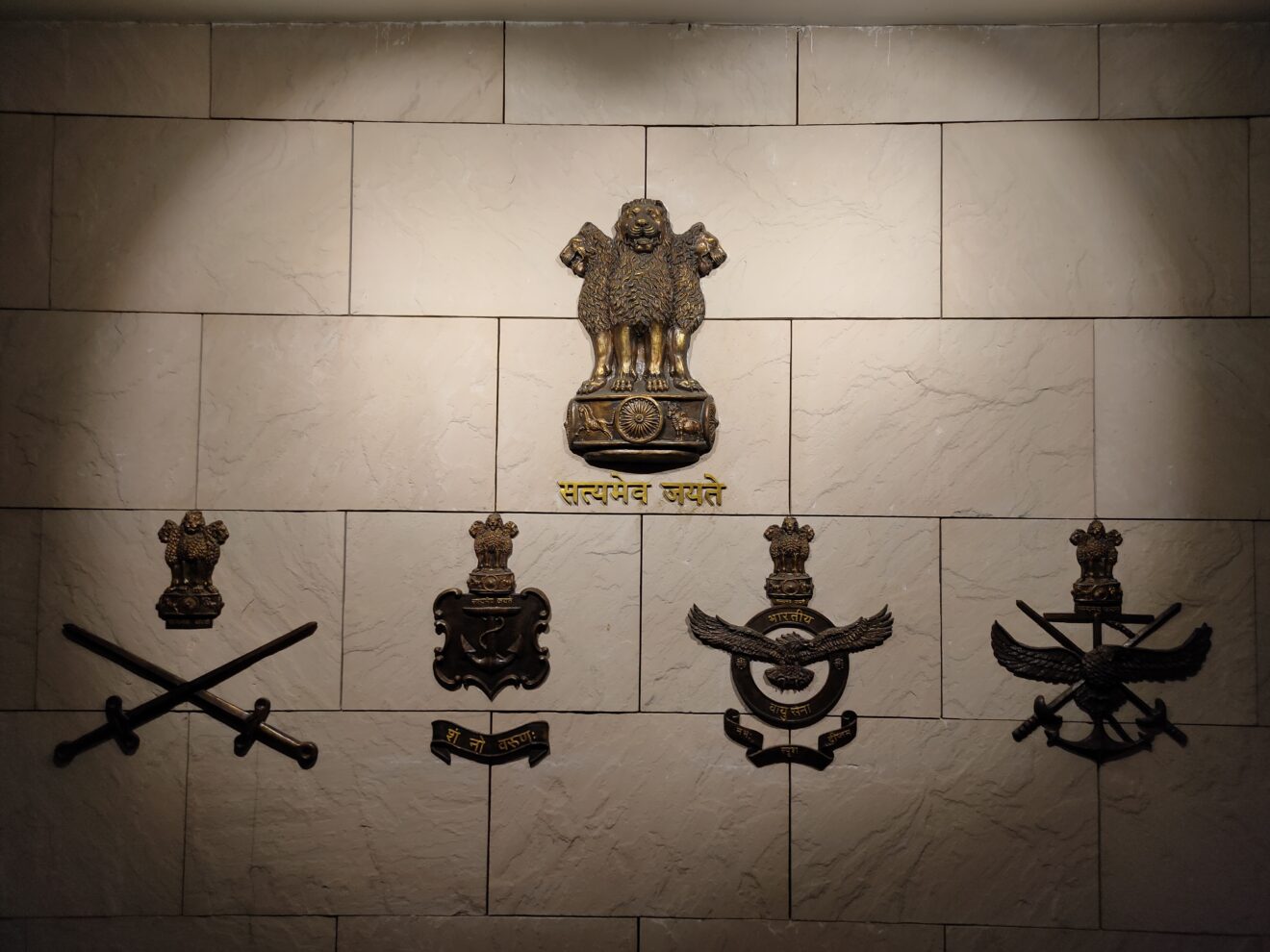



Add Comment